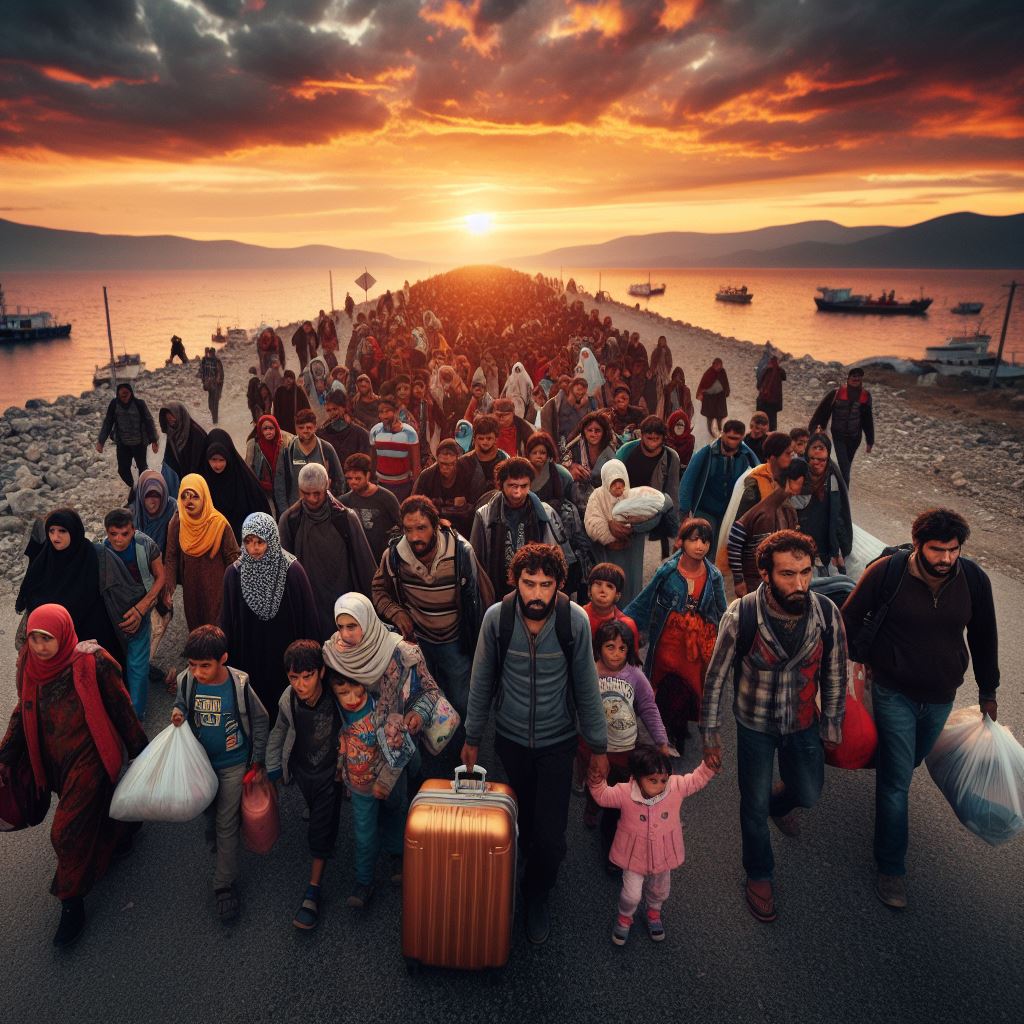The global refugee crisis has had a significant impact on Europe. In 2019, there were over 79.5 million forcibly displaced people worldwide, and Europe has been a major destination for many of them. This has led to a strain on resources and infrastructure in many European countries, particularly those on the front lines of the calamity. Despite the challenges, Europe has shown a remarkable ability to adapt and respond to the calamity. Many countries have implemented policies to provide support and assistance to migrants, including housing, healthcare, and education. However, many issues must be addressed for the refinement of the European economy. These issues and their possible solutions are discussed below.

A closer look at the social and economic impacts of the refugee crisis
The refugee crisis in Europe has had significant social and economic impacts. Firstly, the influx of refugees has put a strain on the social infrastructure of many European countries. This has led to overcrowding in refugee camps, increased demand for social services, and a rise in crime rates. Additionally, the cultural differences between expatriates and the host population have led to social tensions and conflicts.
Secondly, the economic impact of the refugee calamity has been significant. While refugees can contribute to the economy in the long term, in the short term, they require significant financial support. This has led to increased government spending on social services and infrastructure. Furthermore, the influx of refugees has put pressure on the job market, leading to increased competition for jobs and lower wages.
Different impacts on different countries
The refugee crisis has had varying impacts on different European countries, such as:
Germany
In Germany, the influx of refugees has led to an increase in economic growth due to the creation of new jobs and the stimulation of consumer spending. However, the country has also faced challenges in integrating immigrants into society, particularly in terms of language barriers and cultural differences.
France
France, on the other hand, has experienced social and political tensions as a result of the refugee calamity. The country has struggled to provide adequate housing and resources for expatriates, leading to overcrowding and protests.
Sweden
In Sweden, the refugee calamity has had a significant impact on the country’s economy and social welfare system. The country has seen a rise in crime rates and social tensions, particularly in areas with high concentrations of refugees.
All around, it is clear that the crisis has had a significant impact on European countries, both positive and negative. While some countries have been able to successfully integrate migrants into society and benefit from their contributions, others have struggled with the economic and social challenges posed by the calamity.
European government responding to Crisis
The European government is taking a proactive approach to addressing the calamity. In 2015, the European Commission launched the European Agenda on Migration, which outlined a comprehensive strategy for managing the influx of refugees into Europe. This strategy includes measures to strengthen external borders, improve asylum procedures, and increase resettlement and relocation efforts.
Since the launch of the European Agenda on Migration, the European Union (EU) has made significant progress in addressing the crisis. In 2016, the EU-Turkey Statement was signed, which aimed to reduce the number of refugees crossing the Aegean Sea by providing financial assistance to Turkey and increasing resettlement efforts. Additionally, the EU has increased funding for humanitarian aid and development programs in countries hosting large numbers of evacuees.
Despite these efforts, the calamity remains a complex and challenging issue. The government must continue to work together to find sustainable solutions that address the root causes of displacement.
Exploring possible solutions to mitigate the effects of the crisis
The refugee crisis in Europe is a complex issue that requires immediate attention. One possible solution is to increase funding for immigrant resettlement programs. This would provide refugees with the necessary resources to rebuild their lives in a safe and stable environment.
Another solution is to address the root causes of the calamity. This includes addressing political instability, conflict, and poverty in the countries that refugees are fleeing from. By providing aid and support to these countries, we can help prevent future refugee crises from occurring.
Lastly, it is important to promote tolerance and understanding towards refugees. This can be done through education and awareness campaigns, as well as by providing opportunities for refugees to integrate into their new communities.
You may also like these related articles:
